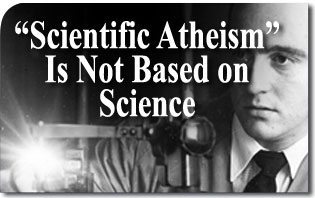 Twenty-six chaired professors in various scientific areas who teach or work in fourteen universities in Spain have published a book to debunk the alleged incompatibility between religion and science spread by “materialist scientists,” Spain’s Infocatólica news agency reported.
Twenty-six chaired professors in various scientific areas who teach or work in fourteen universities in Spain have published a book to debunk the alleged incompatibility between religion and science spread by “materialist scientists,” Spain’s Infocatólica news agency reported.
The book was published one week after scientist Stephen Hawking reiterated he does not believe in God, in His existence or even in the mathematical need for a God who created the universe, as he once affirmed.
Hawking’s statement made waves because he became famous for sustaining some sort of need for God’s existence derived from the equations of the universe.
His hypothesis, worthy of consideration, had been welcomed even by scientific circles less inclined to defend the faith and Catholicism. Now, however, Hawking has disappointed everyone.
David Jou, chaired professor of Condensed Matter Physics at the University of Barcelona is one of the authors of the new book, which sets the record straight. Incidentally, he is the translator of Hawking’s work into Spanish and also wrote the prefaces to all the works published so far by that scientist who has now adopted atheism.
The book, titled 60 Questions on Science and Faith Answered by 26 University Professors, was published by Editorial Stella Maris.
The Spanish specialists contend that today’s scientific knowledge provides data which “analyzed without materialistic and atheistic interpretations” are “not at all incompatible with Christian doctrine.”
According to these scientists, “science has been employed to build ideologies that go way beyond what is allowed by empirical data.”
“From the second half of the twentieth century to this day, we have been able to prove in various fields – especially in those related with cosmology and particularly with the peculiarities of the laws of nature – that an increased understanding of the structure of the world, rather than ignorance thereof, provides a foundation for lines of thought that bridge the gap between science and theology,” they write.
According to the authors, “one can state that the positivist scenario that proclaims the death of religion as a result of science has both failed to materialize and does not look like it will. This is not due to chance or because scientists have still not realized how they should think” but because “it is wrong to assume that the starting points of religious thought are rooted in ignorance of science.”
In over 400 pages, the book refutes the main doubts constructed by atheists against religion based on alleged scientific evidence.
In order to defend a legitimate position the specialists analyze, point by point, neurosciences, biology, cosmology, statistics, and quantum physics.
The book’s authors are:
– Manuel Alfonseca, Chaired Professor of Languages and Information Systems at the Autonomous University of Madrid;
– Ignacio Sols, Emeritus Professor of Algebra at the Complutense University;
– Francisco J. Soler Gil, Professor of Logic and Philosophy of Science at the Universities of Bremen and Seville.
– Aquilino Polaino, Professor of Psychopathology at CEU-San Pablo University;
– Julio Gonzalo, Chaired Professor of Physics of Materials at the Autonomous University of Madrid;
– Nicolás Jouve de la Barrera, Chaired Professor of Genetics at the University of Alcalá; and
– Ignacio García-Jurado, Chaired Professor of Statistics and Operative Investigation at the University of La Coruña.

